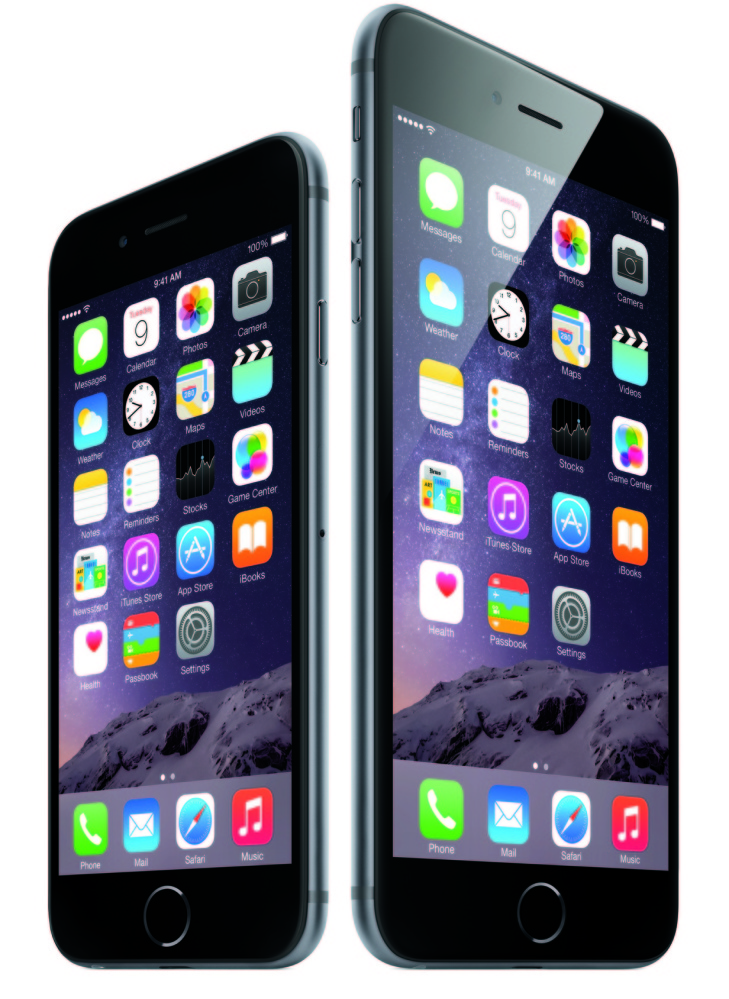SAN FRANCISCO — The iPhone is still the engine behind Apple’s phenomenal success, even if attention lately has been focused on its new smartwatch.
While skeptics question whether the company’s future is tied too much to one product, the iPhone’s popularity was the reason Apple turned in another blowout financial report Monday. The results far surpassed most analysts’ expectations for the first three months of the year, when sales traditionally fall from their holiday-season peak.
Apple sold more than 61 million iPhones in the quarter, accounting for more than two-thirds of its $58 billion in revenue for the three-month period and the lion’s share of its $13.6 billion in profit.
As expected, the numbers were down from the previous quarter, when holiday shoppers bought a record 74 million of Apple’s new iPhone 6, 6 Plus and older models. But the 61 million was a 40 percent increase over the number of iPhones sold in the first three months of 2014.
“We’re seeing great results all over the world,” Apple Chief Financial Officer Luca Maestri said, adding that iPhone sales grew 72 percent in China, where the company has big hopes for expansion.
Other products played a much smaller role. Revenue from Mac computers rose 2 percent from a year earlier, to $5.6 billion, while iPad revenue fell 29 percent, to $5.4 billion – continuing a steady decline in tablet sales.
Since Apple began offering iPhone models with bigger screens last fall, Apple has vied with South Korea’s Samsung for the No. 1 position in the global smartphone market.
The iPhone isn’t just Apple’s dominant product, said Frank Gillett, a tech industry analyst at Forrester Research. “It’s more than anything else what’s driving the success of their company.”
Market researchers, however, expect smartphone growth to slow down worldwide this year, particularly at the higher price range where Apple competes, as most consumers in industrialized countries have already bought one.
“They’re extremely dependent on the iPhone,” said investment analyst Colin Gillis at BGC Partners. “At some point, the market dynamics change,” he said, adding that the question is what could replace the iPhone if sales begin to slow.
Cook said he’s optimistic about new markets such as China, where Apple has made a strong showing against Samsung and China’s Xiaomi by appealing to a growing middle class. He also said only 20 percent of iPhone owners have purchased the newest models, which he painted as a sign that many more will eventually upgrade to the 6 or 6 Plus.
Maestri, meanwhile, said the company is diversifying with new products like Apple Watch and Apple Pay, which on Monday added Discover to the list of payment cards that work with the service. While he acknowledged these currently provide minimal revenue to Apple, analysts say they have big potential. And they are designed to work closely with the iPhone, which means each may bolster the other’s popularity in the future, Gillett said.
Copy the Story LinkSend questions/comments to the editors.



Success. Please wait for the page to reload. If the page does not reload within 5 seconds, please refresh the page.
Enter your email and password to access comments.
Hi, to comment on stories you must . This profile is in addition to your subscription and website login.
Already have a commenting profile? .
Invalid username/password.
Please check your email to confirm and complete your registration.
Only subscribers are eligible to post comments. Please subscribe or login first for digital access. Here’s why.
Use the form below to reset your password. When you've submitted your account email, we will send an email with a reset code.